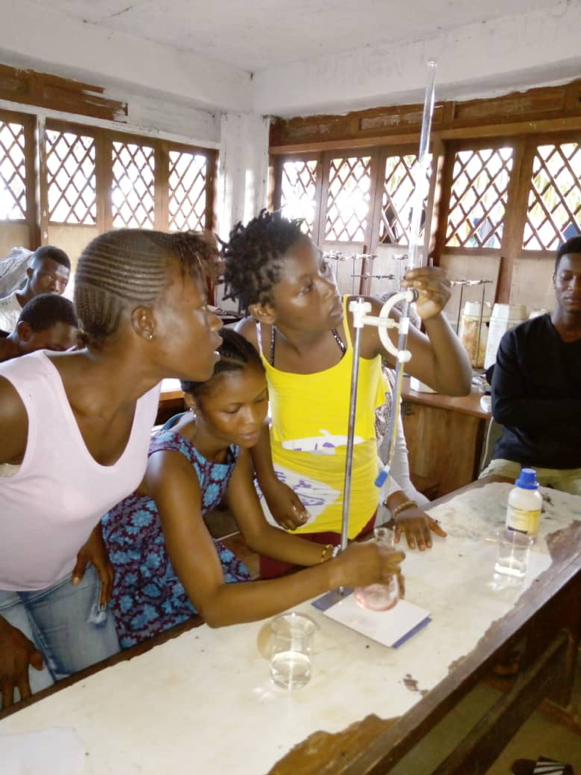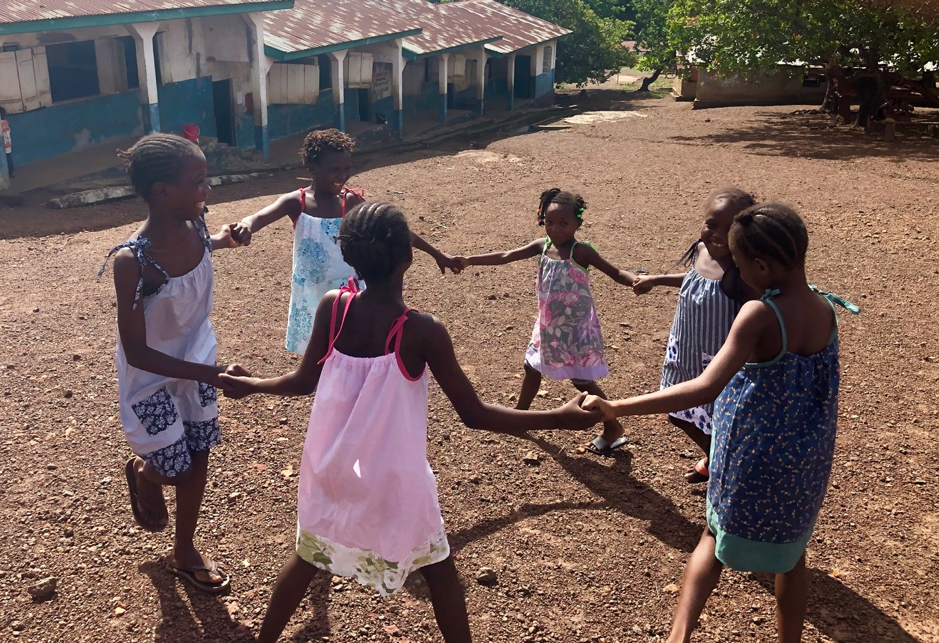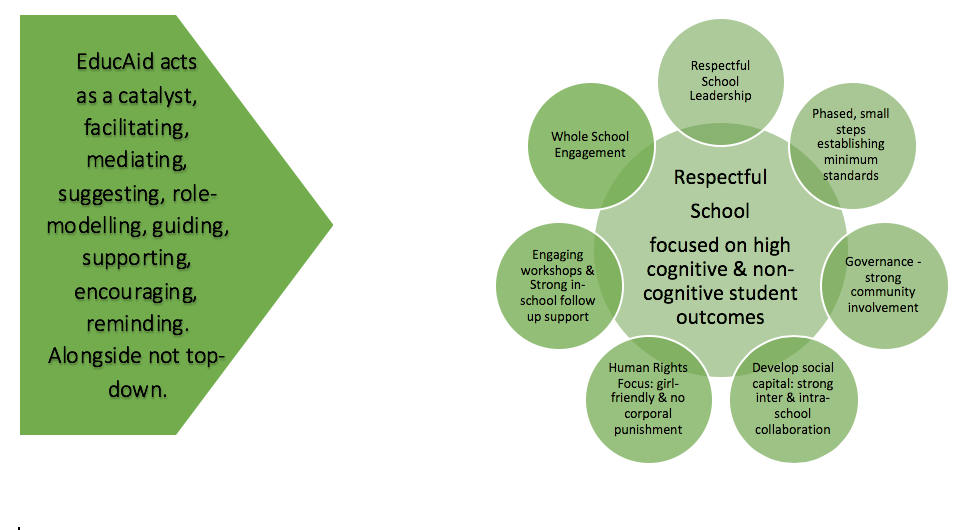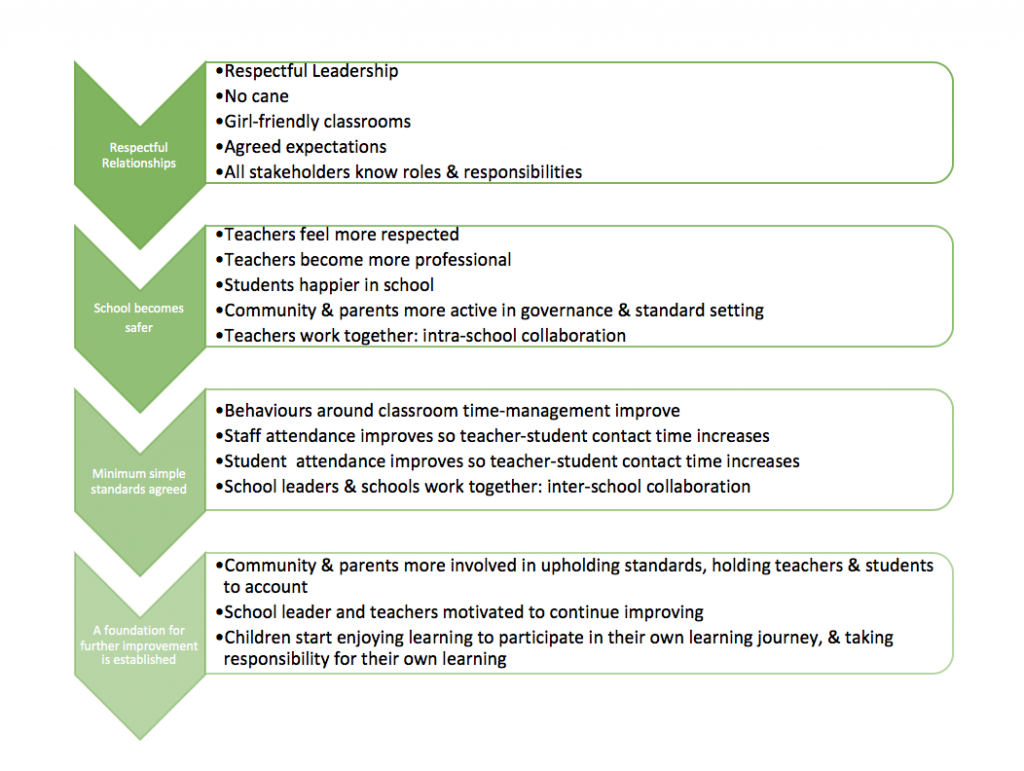What’s the evidence?

25 years! EducAid has spent 25 years learning, working, striving to improve and finding out what works to improve the quality of the education it offers the young Sierra Leoneans it works with. After 25 years, we are now leading the education improvement conversation and action with others in Sierra Leone as part of the Education Innovation Challenge.
In 1994, James Boardman and Swithun Mason registered a charity to support education in Sierra Leone after their first visit to the country as part of a student exchange between University College, London and Njala University. On 18th September 2000, the first EducAid junior secondary school started with 20 youngsters on the back veranda of a rented house in Lumley, Freetown. The numbers quickly grew and with the numbers, the variety of needs grew. The students came from mixed backgrounds and experiences and the needs varied so greatly that it was necessary to devise a completely new system to provide for them.

Over time, as the student numbers grew and EducAid’s reputation for quality grew with it, we were asked to provide support to other schools to help them improve their teaching and learning and the Quality Enhancement Programme (QEP) was born! The intervention focused initially around improved subject content knowledge and some alternative pedagogies, but with trial and error, testing and re-testing we realised what really makes the difference to student outcomes is RESPECT! When we respect ourselves and each other; when children feel respected and are surrounded by relationships that role-model respect and kindness, they want to be in school, attendance improves, children feel free to take risks in their learning, teachers are more relaxed, less angry and less defensive and the whole institution is transformed. Yes, of course, subject content and relevant innovative pedagogies are important, but teachers that love and respect their pupils and their task will, themselves, far more willingly engage in new ways of learning. A virtuous circle is established of respect, collaboration, learning and sharing. This them supplants the previous cultures of negative behaviours such as negative competition, aggression and/or brutality (Truth&ReconciliationCommission, 2004).



In 2019, EducAid’s QEP was one of five winners of the Education Innovation Challenge (EIC), a competition organised by Sierra Leone’s Department for Science, Technology & Innovation (DSTI) to find innovative ways to improve the quality of education (https://www.dsti.gov.sl/sierra-leone-invests-1-5-million-to-bring-education-innovation-to-schools-for-better-learning-outcomes/). As a result, we have started working with 60 schools across the north of Sierra Leone. DSTI is providing rigorous evaluation of all interventions undertaken under the EIC. Our initial data in previous versions already showed promise with improvements in attendance and literacy outcomes (24.2% average improvement in attendance in the intervention schools versus 2.9% in comparison schools and 26.5% average improvement in literacy attainment in the intervention schools versus 2% improvement in literacy attainment in the comparison schools). With the rigorous external evaluation of DSTI, there is the opportunity to test further. After the initial year, the experiment will then go to a larger pilot which will, in turn, be scaled to a national roll out if all goes to plan. We are working on this project closely with the government and are at the heart of the conversations to transform education in Sierra Leone.
When we start these conversations in most communities with parents, head-teachers, teachers and students, we are regarded as the Sierra Leonean equivalent of irresponsible hippy tree-huggers that will sow indiscipline and chaos. When they visit our schools and meet our students who are lively but under control, outspoken but respectful, excited by a range of learning opportunities, independent but good team workers, they are moved and inspired.
We may have been fighting this battle from the margins for the first 25 years of our existence, but it has given us the knowledge and experience few others possess. In our next 25 years, we will be at the heart of the change, bringing values-led, quality education to young people across Sierra Leone.
Working with hundreds of teachers and head-teachers, drawing them into the EducAid family and ways of working, we are now at the forefront of education transformation.
With Irina Bokova, we believe that ‘since wars begin in the minds of men [and women], it is in the minds of men [and women] that the defences of peace must be constructed’. No defences are more secure than public attitudes grounded in tolerance, mutual respect and commitment to dialogue. These attitudes should be actively cultivated every day in every classroom across the world. Using schools to vehicle bigotry, chauvinism and disrespect for other people is not just a route to bad education but also a pathway to violence’. (UNESCO, 2011)
Thank you to all of you who have been part of this journey.
Thank you to all of you who continue to stand by our side and contribute.
It costs us approximately £5 per month to keep a day student fed so they can stay in school.
It costs us approximately £360 a year (£20 per month) to keep a live-in student fed, cared for, accommodated and educated.
Whatever you are able to contribute, we promise it will support some of the most vulnerable young people in the world get an excellent education. It will also provide the role-model example needed by so many other schools so that education across Sierra Leone can be transformed!
Please see www.educaid.org.uk for more information.
Please see https://www.educaid.org.uk/get-involved/donate/ if you are in a position to make a one off or regular donation.